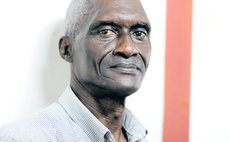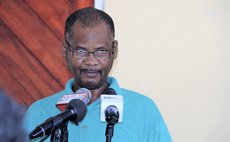Options for Promoting the Economic Development Potential of Kalinago Land and People
The persistence of high poverty levels in the Kalinago Territory can be explained to a large extent by the failure to fully exploit the economic development potential of the land on account of the existing communal land tenure system which is at odds with a national economic system underpinned by individual property rights. What are the options for changing this situation? On the 110th anniversary of the official establishment of the Carib Reserve this year, I offer some ideas for consideration.
There are no easy choices, and trade-offs would have to be made. The objective of the proposals presented is to introduce flexibility in the land regime that would promote economic development whist seeking to maintain as much as possible the cultural and social capital that may be associated with Kalinago communal land ownership.
Land Use Certificates
Land, according to the Carib Reserve Act, is allotted by the Carib Council to residents for agricultural or other approved purposes. The right to use granted by the Council can be formalized. According to the findings of a 2008 study on land administration in Dominica, the occupation of land in the Kalinago Territory by individuals already has some characteristics of individual ownership: long undisturbed occupation and in in many cases across several generations of the same family, which makes it possible to devise effective rights; ability to transfer holdings to other Caribs; and enjoyment of the rewards of one's labour on occupied land without disturbance and payment. The right to use should be legally registered, and the beneficiary awarded a certificate that recognizes his right of use to the assigned and demarcated property. With legal formalization, land use rights can be transferred, exchanged, leased, inherited and mortgaged.
The success of this option faces strong odds, however. The market for trading the certificates would be limited in size and value as the only participants would be residents in the Territory (in keeping with the intention of the Act to reserve ownership to residents). This is particularly so given the high level of poverty. Mainstream financial institutions may be reluctant to accept the certificates since they cannot claim ownership of the underlying asset and are likely to experience difficulty in offloading the certificates because of the small market size. To counteract this, loan guarantees can be provided through a special purpose entity. The guarantees will give the private sector the confidence to increase the availability of mortgage and business capital to the Kalinago community.
Freehold titles
Under this option, some of the land in the Territory could be subdivided and ownership registered in the names of bona fide residents while the land itself is designated as Kalinago land. Individuals who owe property are in an advantageous position. They are able to use their ownership as collateral in order to borrow capital to build a home or borrow capital to fund business ventures. A transparent set of criteria would have to be developed to guide the selection of persons for freehold titles. For example, the land can be allotted and registered in the name of the head of the household. The length of occupation of the surveyed land can also help with the assignment of rights as earlier indicated. Limits should be placed on the amount of land that is parceled out to individual owners in order to retain some land in communal ownership for community-wide projects and to minimize land grab.
To retain Kalinago ownership of the land, transfers would be restricted to residents of the territory and a fund could be set up to guarantee repayment of loans. In cases of chronic default, the fund would pay the lender the remaining loan balance and obtain the certificate of title which will then be passed on to the Carib Council.
Of course, the grant of private land ownership titles under this scenario is fraught with considerable challenges such as disputes, unintended distributive effects, and possibly high costs of creating, enforcing and administering the titles.
Furthermore, loan guarantees give rise to the problem of moral hazard, i.e., loan defaults could be high. The exposure of the fund to this risk could be limited in some way by requiring the borrower to pay the fund a fee equivalent to a certain percentage of the borrowed funds for the guarantee. Despite the existence of the fund, direct government support in the form of grants and subsidies would be required for the poorest and most vulnerable especially in the area of housing. There is also the question of how the fund would be capitalized.
Leaseholds
The Carib Council may choose to grant leases to third parties outside of the community who wish to invest in the Territory. The Act provides for the Council to enter into contracts involving real or personal property. The underlying title of ownership of the land would remain with the Kalinago people through their Council. The lease would be for a specific purpose and a specified period and subject to the payment of land rent and to rules and conditions with which the lessee is required to comply. The leases would be renewable and transferable with the consent of the Council, the lessor.
Finally, while the introductions of innovations to land policy —in particular freehold titles and leaseholds—can play an important role in advancing economic development in the Kalinago Territory, other complementary factors have to be considered as part of the milieu. These include the availability of affordable finance for mortgages and business and the role of public policy in that regard; the viability of proposed developments; the cultural value the Kalinagos place on the land; and human resource development.




